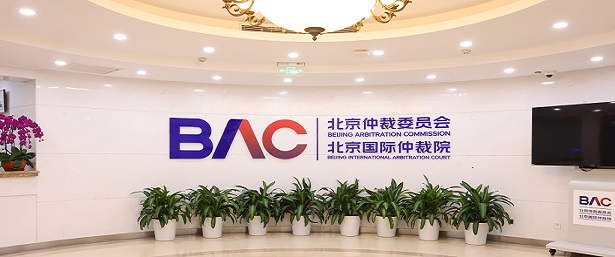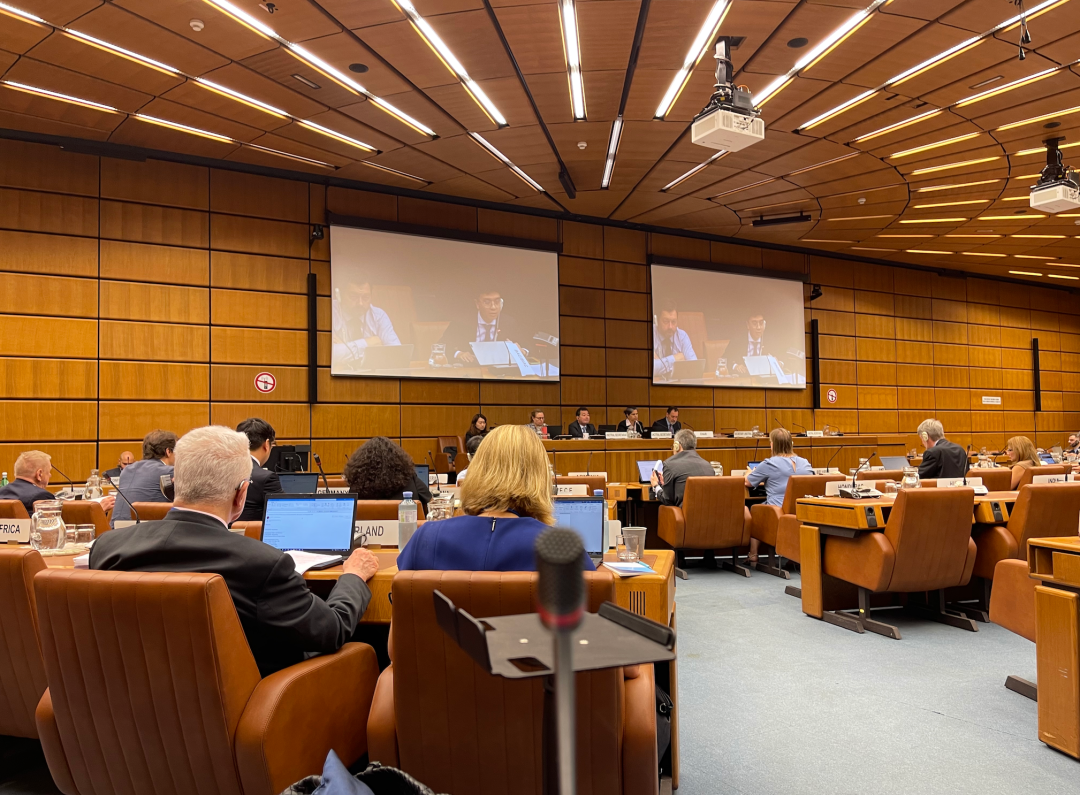
Publish time: Sat Sep 30 14:37:55 CST 2023
Between 18 and 22 September 2023, the 78th Session of the United Nations Commission on International Trade Law (“the UNCITRAL”) Work Group II (Dispute Settlement) was held in the UN Center in Vienna, Austria. Delegations from 65 UNCITRAL member states, 17 observer states, 7 intergovernmental organizations and 33 non-governmental organizations have attended this conference. The Beijing Arbitration Commission / Beijing International Arbitration Center (the “BAC”) was invited to attend the conference as an observer. The BAC delegation consisted of Mr. Chen Liangyu, Director of BAC Business Division II, and Ms. Ma Xiaoxiao, Senior Counsel of BAC Business Development Division (International Arbitration Division), has attended the conference.

The Session
The conference focused on discussion concerning model clauses and guidance text of technology related dispute resolution and adjudication. As proposed by Ms. Anna Joubin-Bret, Secretary General of the UNCITRAL, the UNCITRAL member states agreed that Mr. Andrés Jana from Chile to be the chairperson of the Work Group II, and Ms. Thi Van Anh LAI from Vietnam the reporter.
The model clauses and guidance text have been carefully reviewed during the conference. The draft contained 8 clauses and 70 subparagraphs, including model clause on highly expedited arbitration, model clause on expert determination procedure, model clause on experts accompanying the tribunal, model clause on confidentiality, guidance text on confidentiality within the proceedings, guidance on evidence, guidance to ensure an expeditious arbitration. All participants agreed that the UNCITRAL Expedited Arbitration Rules (the “EAR”) should be adopted as a basis, and model provisions, clauses, or other forms of legislative or non-legislative text could be prepared on matters such as shorter time frames, the appointment of experts and/or neutrals, confidentiality, and the legal nature of the outcome of the proceedings, for the purpose of convenience and flexibility of the proceedings and high efficiency of the proceedings. It was stressed that such work should be guided by the needs of the users, taking into account innovative solutions, as well as the use of technology and should further extend the use of the EAR. During the discussion of specific texts, the participants reached consensus on most of the content, but still had different opinions on part of the provisions. This is due to varied concerns on the impacts and details of an opt-out of Article 16, paragraph (2) to (4) of the EAR in the model clause of highly expedited arbitration. With respect to adjudication, issues such as whether expert determination under Article 2 of the model clause constitutes arbitral award under the New York Convention, whether such determinations are enforceable and its relationship with arbitration as stipulated in Article 3, would need further considerations and interpretations. The Work Group II will have further review of relevant issues during the next session in New York.
The BAC delegation has fully participated in the review and discussion, and offered experiences from the BAC’s practice. It shared opinions on time schedule and confidentiality mechanism under the highly expedited arbitration procedure in technology related disputes by reference to the BAC’s arbitration rules and practice. The BAC representative highlighted that the BAC has extensive experience in efficient dispute resolution, and the average time spent in arbitration administered by the BAC from the composition of the arbitral tribunal to the conclusion of the case is less than 100 days. Based on its practice, BAC delegation opined that the highly expedited arbitration is meant to settle the parties’ dispute in an expedited matter, yet equal treatment of all parties is still one of the fundamental principles of arbitration. So at the initial stage after the highly expedited arbitration procedure commences, the respondent should be given reasonable time period to rebut, so as to keep the procedural justice. So far express stipulation on confidentiality is rarely seen in the existing laws and rules in various jurisdictions, so corresponding remedies and punishments should be integrated into the model clauses on confidentiality, by which to promote the parties to follow the confidentiality requirements, highlight the core advantages of arbitration, and raise the parties’ confidence in arbitral proceedings. These insights of the BAC delegation has won close attention of the Word Group II.

The BAC delegation shared opinions
Ever since it became an observer of the UNCITRAL in 2017, the BAC has continued to attend sessions of the UNCITRAL Work Groups, and has constantly summarize and promote the experience of Chinese arbitration and told Chinese arbitration story, providing insightful suggestions and reliable practical support to the making of relevant international rules on arbitration. Meanwhile, the BAC has kept having international exchanges and cooperation through such events, and thereby promoted the high-quality development of foreign-related legal service industry, and moved in the direction of building itself into a leading international arbitration institution.
Professionals from different industries are all welcome to continue to pay attention to the BAC’s diversified dispute resolution practice, and participate in various events organized by the BAC. You are also welcome to pay attention to the BAC’s website and WeChat account for more information.